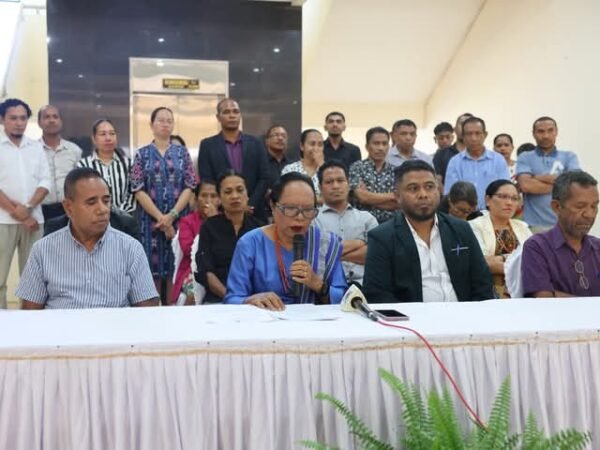Dili, October 23, 2025 (Média Democracia) – The Ministry of Social Solidarity and Inclusion (MSSI) has launched the Reproductive Data Collection Activity on Social Welfare. This launch marks an important step in the data collection process aimed in identifying types of social welfare issues in Timor-Leste. The event took place at the MSSI Central Building in Caicoli, Dili, on Wednesday (22/10/2025).
In an interview, Minister of Social Solidarity and Inclusion Veronica das Dores stated that the ministry is opening a new phase in collecting data to identify social welfare issues in Timor-Leste.
“We begin the process of data collection by the Ministry of Social Solidarity and Inclusion regarding social welfare issues across the country,” said Minister Veronica das Dores.
The Minister added that today’s objective is to formalize the team responsible for reproductive data collection to support the work of MSSI.
“Through this, we will obtain accurate data on the types of social welfare problems based on territorial areas throughout the country, so that MSSI will understand the nature of social issues within communities. The data collection process will begin today, 22 October 2025, and will end on 19 December this year,” the Minister stated.
The Minister further explained that data will be collected from municipalities down to some selected villages, covering five to eight villages. The data collection will be carried out over one month.
“A total of 53 personnel from MSSI will be deployed to the field. One post-administrative coordinator and two new officials will operate in each administrative post,” she said.
The Minister affirmed that the ministry’s staff is prepared to conduct data collection and expects this activity to help respond to social welfare problems nationwide. The National Directorate together with the General Directorate of Cooperatives, along with the monitoring team, will be responsible for analyzing the data and preparing the report.
“MSSI urges teams to communicate according to program needs, whether challenges or successes, and to carry out their responsibilities. Each social welfare typology along with EPBES data and other potential resources must be recorded systematically using tablets and collection forms,” Minister Veronica emphasized.
According to the typology listed in the registry form EPBES (coded A-1 to A-20), priority categories include children at risk or in danger (abandonment, exploitation, physical or sexual violence), child delinquency, children under paternal custody, and neglected children.
MSSI further highlighted that the scope of data collection will cover various vulnerable groups: children in conflict with the law, beggars, homeless individuals, drug users, survivors of gender-based and domestic violence, people with disabilities due to chronic illness, former prisoners, abandoned elderly people, women at socio-economic risk, poor families, families without habitable housing, victims of natural disasters and social incidents, street children, LGBTI persons, and orphans.
Report by: Domingas
Photos by: Domingas

